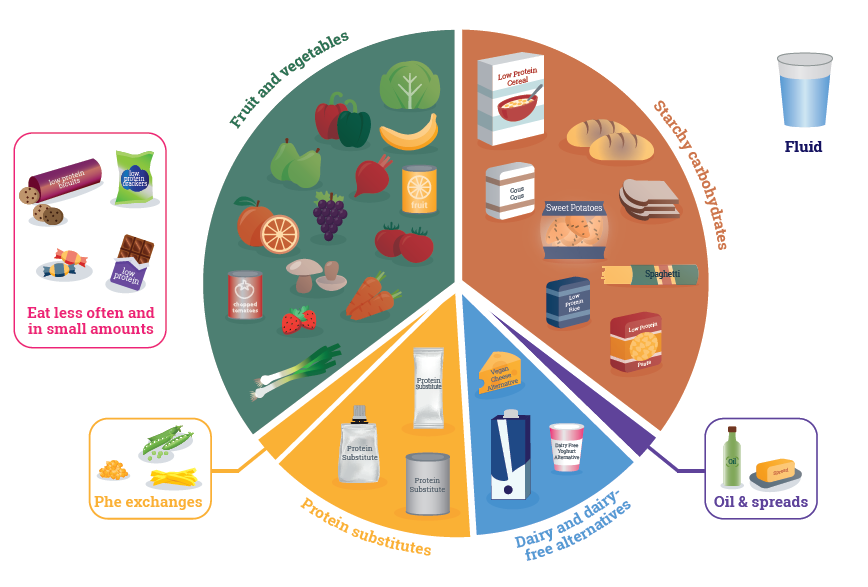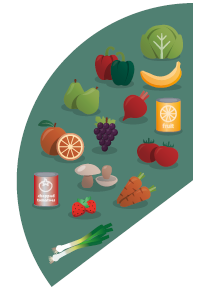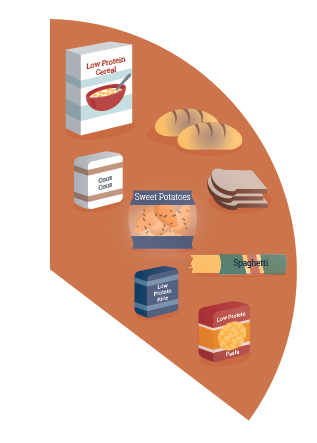How Much Should My Child Eat?
How Much Should My Child Eat?
It is essential to provide your child with a healthy balanced diet, which includes enough energy to grow and be active and enough nutrients to stay healthy and well. Eating family meals together will encourage them to enjoy a variety of foods. A suggested healthy routine is to offer children 3 meals and 2 or 3 nutritious snacks a day to achieve their energy and nutrient requirements. This should prevent them grazing on food and encourage an appetite for meals.
Read more
Which foods should my child eat and why?
The ‘Eatwell Guide’ provides a visual image of the different types of foods and drinks that people without PKU should eat to ensure a balanced diet. The guide we have provided in this section has been adapted for a low protein diet.
Read more
Fruit and vegetables:
Read more
Starchy carbohydrates:
Read more
Protein:
Read more
Dairy and dairy free alternatives:
Read more
Oils and Spreads:
Read more
Fluids:
Read more
Low Protein high fat and sugary foods and drinks (occasional foods):
Read more
Big appetites
Read more








